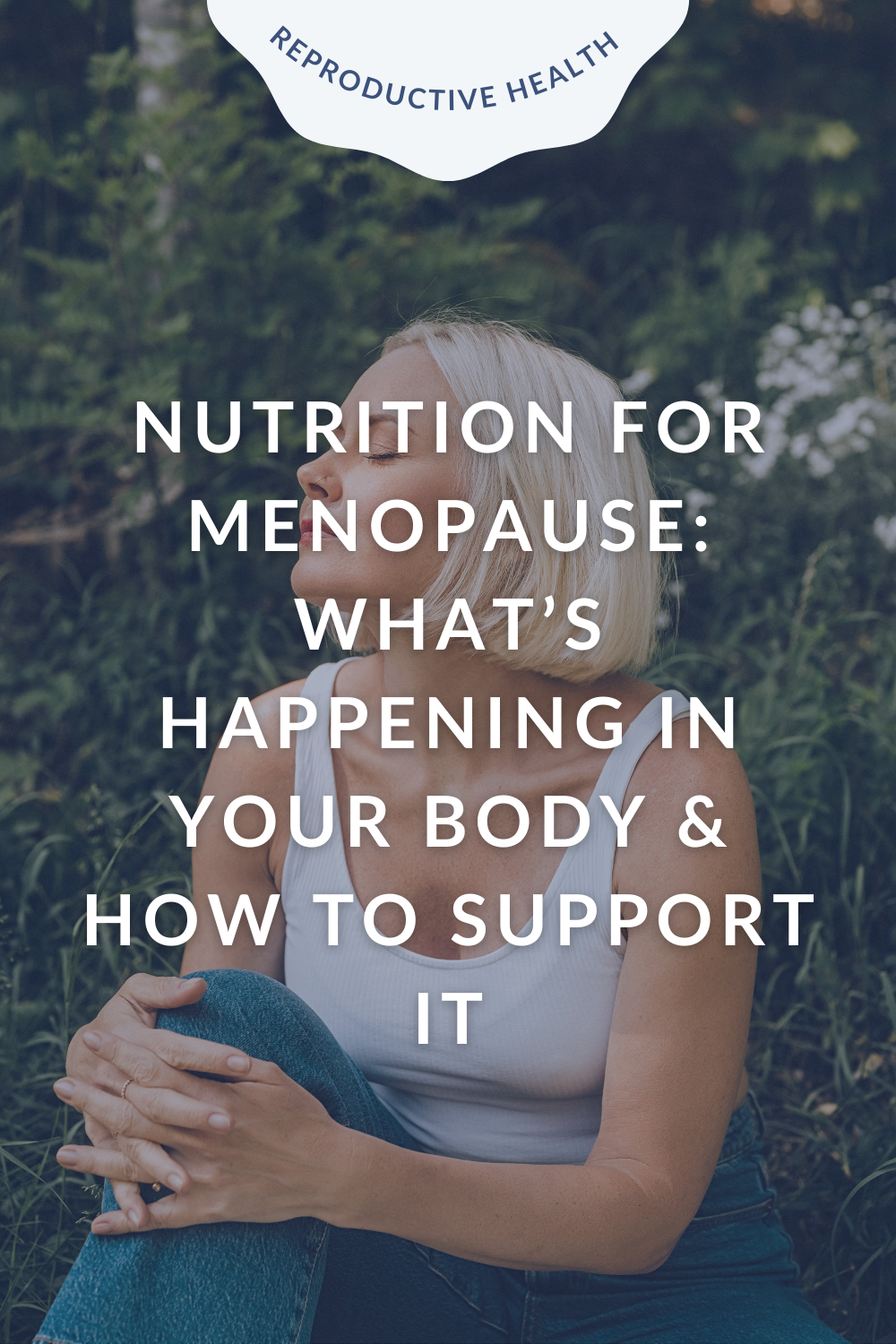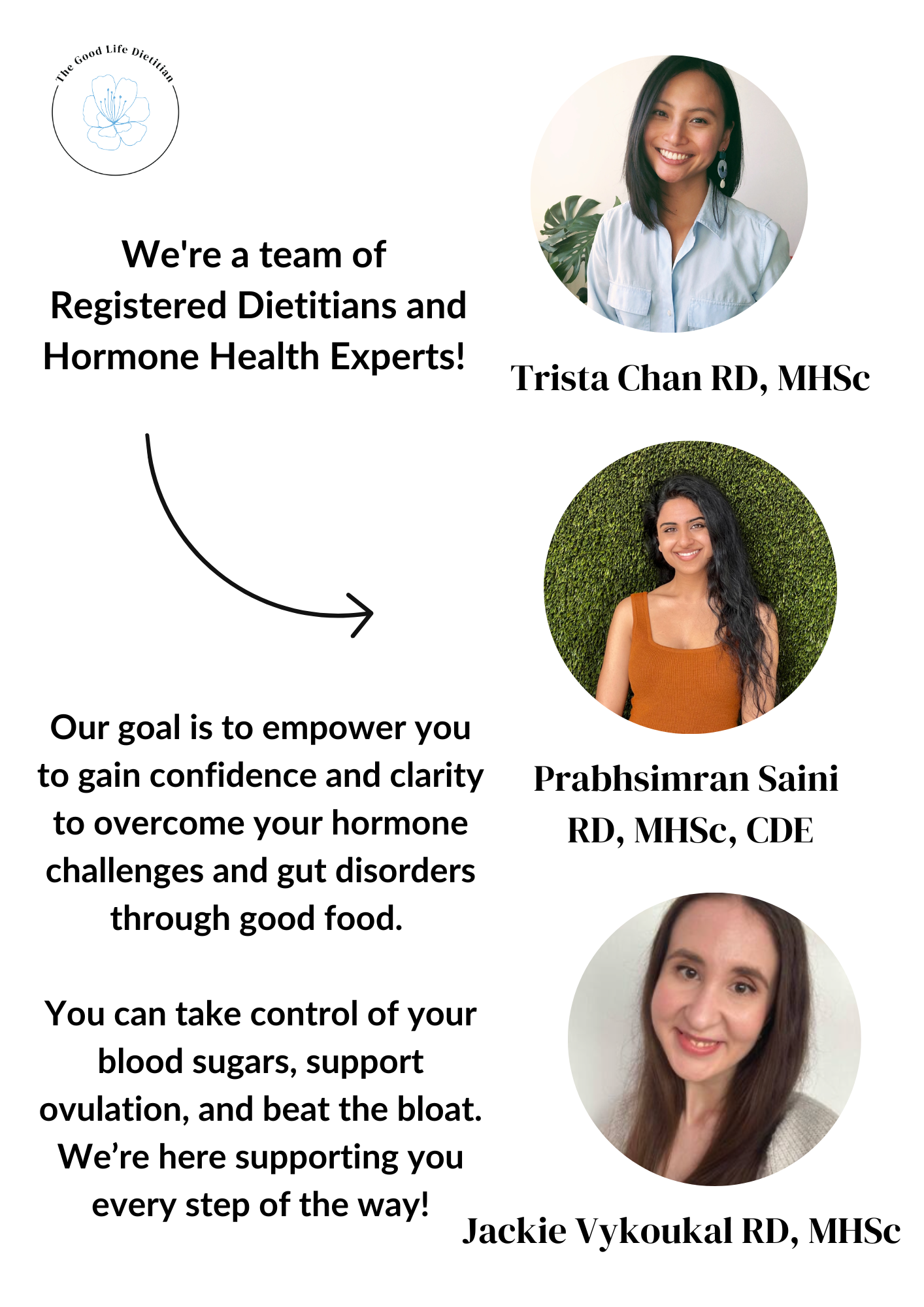How to Build Balanced Meals for PCOS and Hormone Health
Hormone health is everywhere these days-on social media, in wellness circles, and even in doctor’s offices. But if you live with polycystic ovary syndrome (PCOS), you know it’s more than a buzzword.
PCOS is one of the most common endocrine disorders, and affects an estimated 5-13% of people of reproductive age with ovaries. And while the symptoms can feel overwhelming, understanding your hormones and how to support them with food can make a huge difference.
In this post, we’ll break down the three main hormones linked to PCOS and share a simple, three-step framework for building balanced meals that nourish your body and help manage symptoms.
Hormones and PCOS: What You Need to Know
Hormones are your body’s chemical messengers, responsible for everything from growth and fertility to metabolism, mood, and sleep. Scientists have identified over 50 hormones so far, and many naturally shift throughout the stages of life: puberty, pregnancy, breastfeeding and menopause.
For those with PCOS, three hormones tend to stand out:
1. Insulin
Insulin is often elevated in PCOS due to insulin resistance, meaning your body produces more and more insulin but struggles to use it effectively. The result? Higher blood sugar levels, more fatigue after meals, and an increased risk of metabolic conditions over time.
2. Androgens
Androgens are “male hormones” like testosterone and DHEAS. Elevated insulin levels can drive up androgen production, leading to symptoms like irregular periods, acne, facial hair growth or hair thinning.
3. Cortisol
Cortisol is your stress hormone. Living with PCOS can be stressful in itself, and research suggests many people with PCOS experience higher-than-average cortisol levels, which may worsen symptoms.
The takeaway: testing hormone levels through bloodwork can offer valuable insights, but nutrition and lifestyle changes also play a powerful role.
The Role of Nutrition in PCOS
One of the most common questions people ask is: “Can I eat carbs if I have PCOS?” The short answer: yes.
Carbohydrates aren’t the enemy - they provide essential energy. The key is choosing the right type of carbs and pairing them with protein and unsaturated fats. This slows down digestion, keeps blood sugar steady and prevents the big spikes and crashes that worsen PCOS symptoms.
Here’s how each macronutrient fits into a hormone-friendly plate:
Carbs: Opt for slow-digesting carbs like steel-cut oats, parboiled rice, soba noodles, beans, lentils, and whole fruits/veggies with skin.
Protein: Aim for variety. Lean meats, dairy, eggs, beans, lentils, chickpeas, soy, nuts, and seeds. Soy, in particular, has been linked to lower insulin, improved blood sugar, and reduced free androgens.
Fats: Focus on omega-3’s (salmon, trout, chia seeds, flax, walnuts, olive oil). They help reduce inflammation, support heart health, and may even improve mood.
A Simple 3-Step Framework for Building Balanced Meals
When planning your meals, try this easy approach:
🥦 ½ plate non-starchy vegetables: spinach, zucchini, tomatoes, eggplant, peppers, bok choy, etc.
🍗 ¼ plate protein: think tofu, chicken, fish, edamame, eggs, or beans.
🍚 ¼ plate slow-digesting carbs: whole grains, legumes, starchy veggies like sweet potatoes or squash.
This framework works with any cuisine or food tradition. It’s not about restriction, it’s about balance. Adjust ratios to your preferences and foods you can access while keeping the principle of variety in mind.
Key Takeaways
PCOS is linked to three main hormones: insulin, androgens and cortisol.
Instead of eliminating carbs, focus on slow-digesting carbs and always pair them with protein and unsaturated fats.
A simple framework: ½ veggies, ¼ protein, ¼ carbs - can help balance blood sugars, support hormones and reduce symptoms.
Managing PCOS isn’t about perfection, it’s about small, sustainable shifts that bring more energy, balance, and joy back into your life.
Hi! I’m Trista
A Registered Dietitian and reproductive health expert. I’m here to help you gain confidence to overcome your Polycystic Ovary Syndrome and digestive health woes, while bettering your relationship with food.
CATEGORIES
Looking for clarity on your PCOS symptoms?
Download our free PCOS Symptom Tracker + Labs Checklist to uncover the patterns and prepare for your next appointment
References
Gautam R, Maan P, Jyoti A, Kumar A, Malhotra N, Arora T. The Role of Lifestyle Interventions in PCOS Management: A Systematic Review. Nutrients. 2025 Jan 16;17(2):310. doi: 10.3390/nu17020310. PMID: 39861440; PMCID: PMC11767734.
World Health Organization. (2025, February 7). Polycystic ovary syndrome. https://www.who.int/news-room/fact-sheets/detail/polycystic-ovary-syndrome













